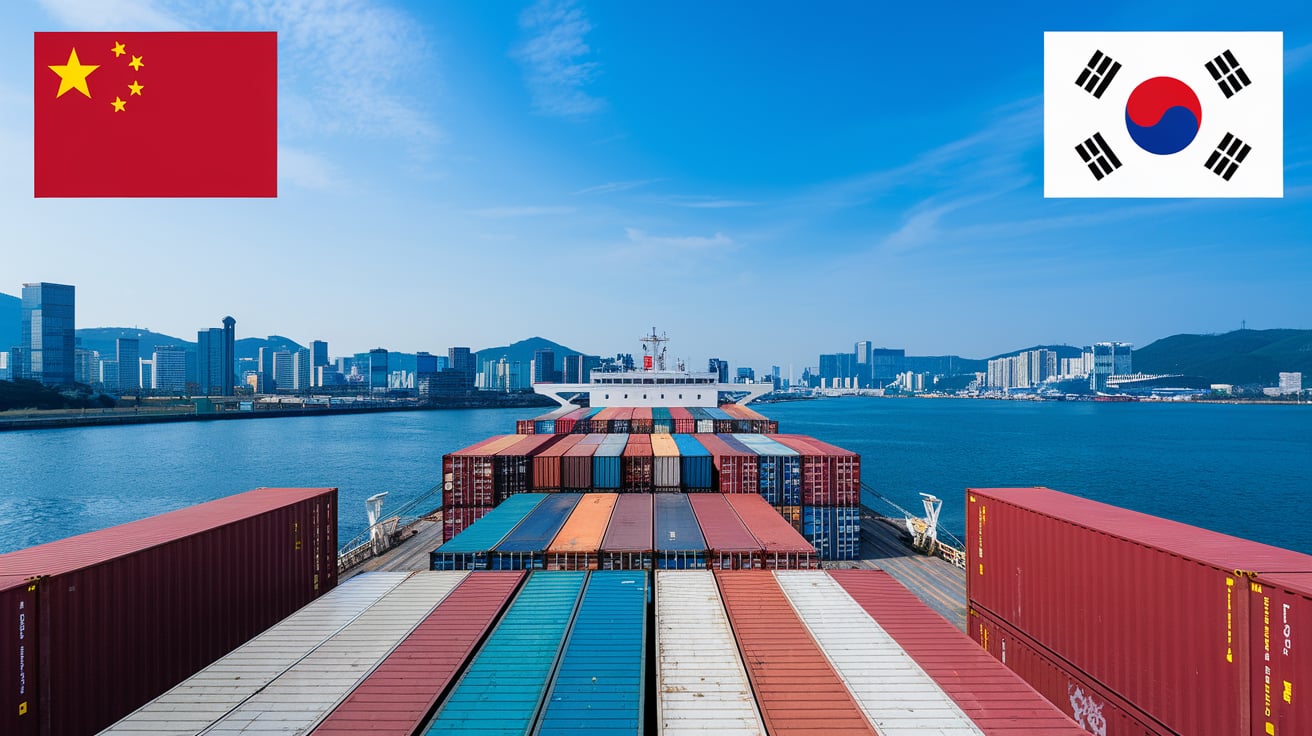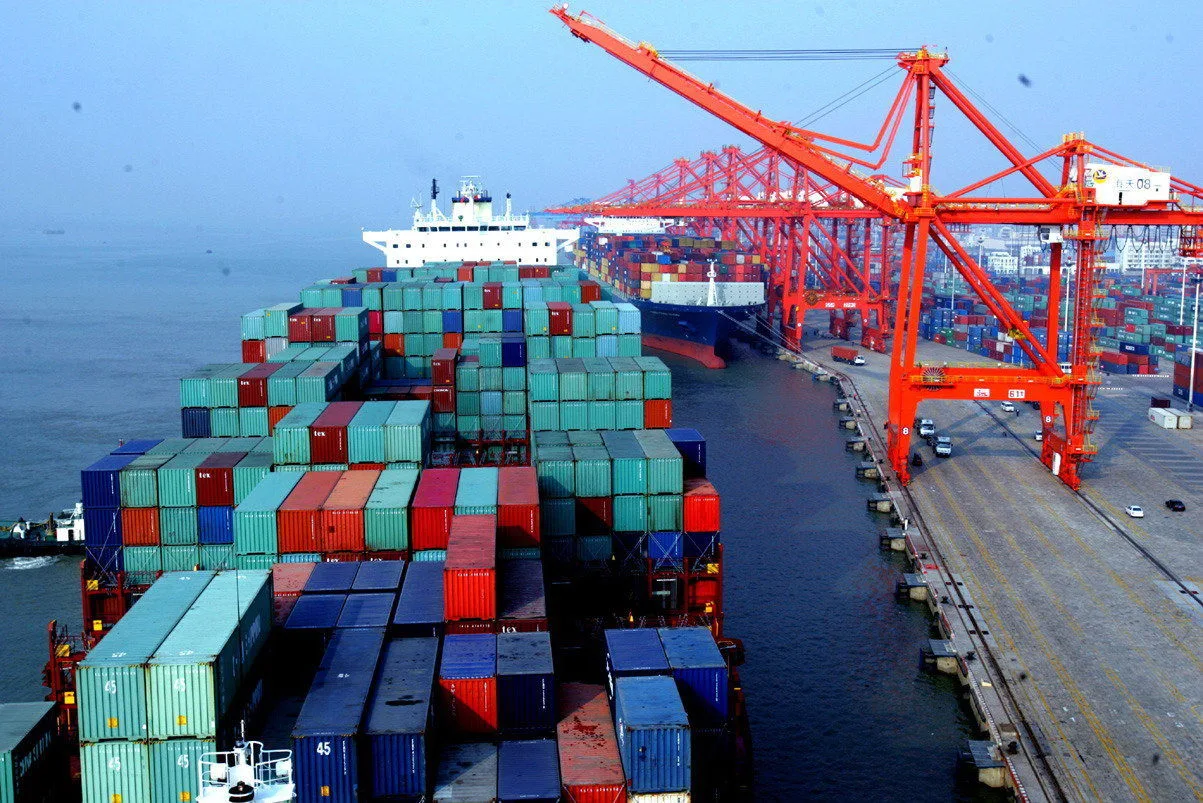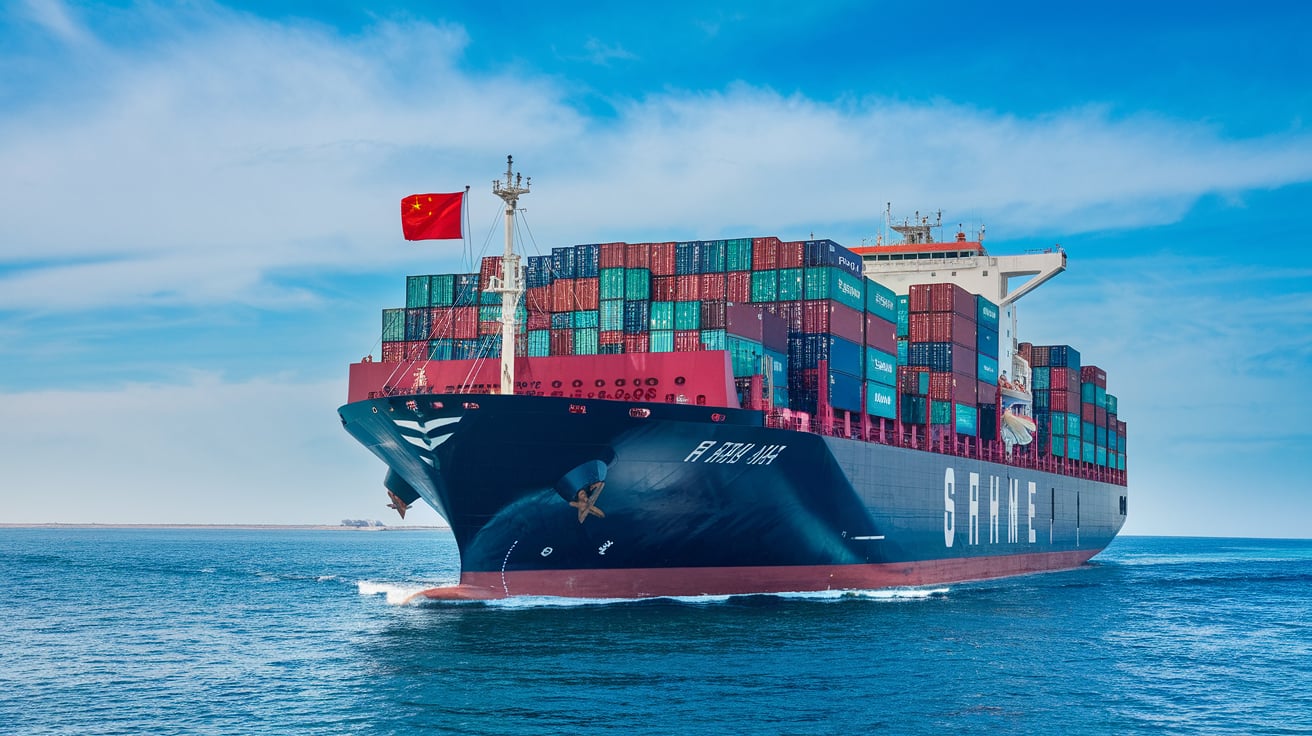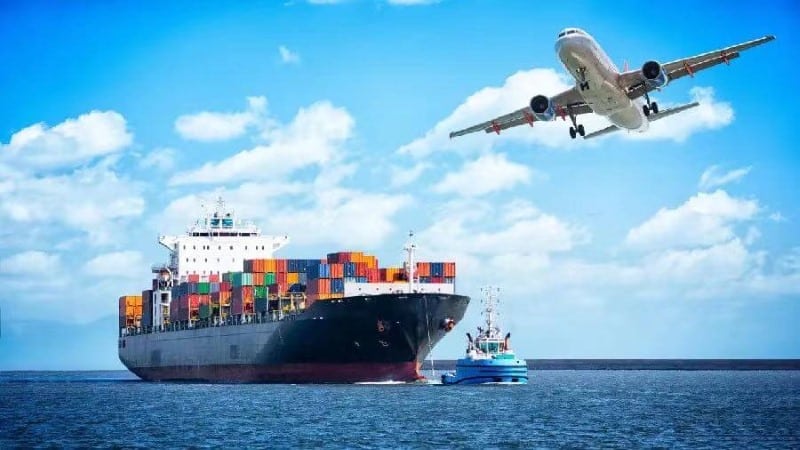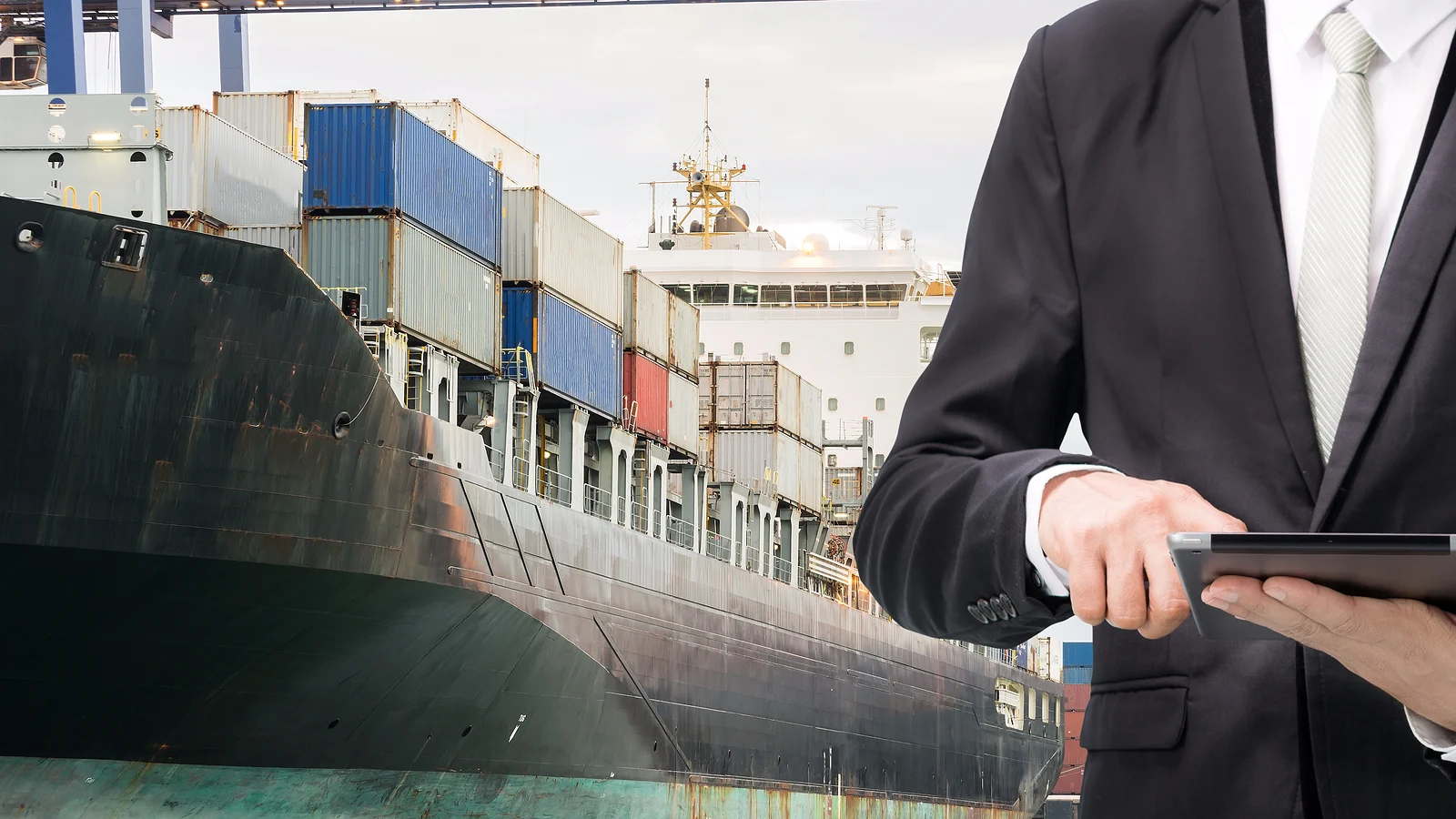Navigating the complexities of international shipping can be daunting, especially when it involves transporting goods from China to Indonesia. The role of a freight forwarder is pivotal in ensuring that your shipments are handled smoothly and efficiently. By acting as an intermediary between shippers and transportation services, freight forwarders streamline logistics, manage customs clearance, and provide valuable insights into regulations. This guide explores essential factors to consider when selecting a freight forwarder, the benefits of their services, and effective strategies for finding the right partner to enhance your shipping experience. Whether you are a seasoned importer or new to international trade, understanding how to choose the best freight forwarder can significantly impact your business success.

Understanding the Role of a Freight Forwarder
A freight forwarder is a specialized logistics service provider that coordinates and manages the transportation of goods on behalf of importers and exporters. Acting as an intermediary between shippers and transportation services, freight forwarders arrange for the movement of cargo using various carriers, including ocean, air, and land transport. They handle essential tasks such as documentation, customs clearance, and insurance, ensuring that goods reach their destination efficiently and cost-effectively.
Why Use a Freight Forwarder for Shipping from China to Indonesia?
When considering shipping from China to Indonesia, utilizing a freight forwarder can significantly streamline the process. Here are several compelling reasons to engage their services:
-
Expertise in Regulations: Shipping goods internationally involves navigating various regulations and compliance requirements. A freight forwarder possesses in-depth knowledge of the legalities involved in shipping to Indonesia, ensuring that all customs and regulatory checks are met.
-
Cost Savings: Freight forwarders leverage their extensive networks and relationships with carriers to negotiate better shipping rates. This can result in significant cost savings for businesses, especially for those new to international shipping.
-
End-to-End Logistics Management: Freight forwarders offer a one-stop solution, managing every aspect of the shipping process from the point of origin to the final destination. This includes packing, documentation, customs clearance, and delivery, allowing businesses to focus on their core operations.
-
Risk Mitigation: In international trade, risks such as delays, damages, or loss of cargo are inherent. Freight forwarders can arrange for insurance coverage, providing peace of mind to businesses by protecting their investments.
Factors to Consider When Choosing a Freight Forwarder
Selecting the right freight forwarder is crucial for successful international shipping. Below are key factors to consider:
Legitimacy and Licensing
Before entrusting a freight forwarder with your cargo, it is essential to verify their legitimacy. Ensure that they are licensed and registered with the appropriate authorities, such as the Federal Maritime Commission (FMC) in the U.S. or other relevant entities in your country. A reputable freight forwarder will display their registration details prominently and be transparent about their licensing.
Experience and Expertise in China and Indonesia Trade
The complexities of trade between China and Indonesia necessitate experience and expertise from your freight forwarder. Look for providers that have a proven track record in handling shipments between these two countries. Their familiarity with local requirements and relationships with customs officials can expedite the shipping process and minimize potential issues.
Range of Services Offered
A comprehensive range of services is vital for effective logistics management. Consider freight forwarders that offer:
- Customs Clearance: Expertise in navigating the customs process is essential for avoiding delays.
- Warehouse Services: Safe storage solutions can be critical for managing inventory.
- Door-to-Door Shipping Services: This convenience simplifies the shipping process for businesses.
Explore the services offered by Dantful International Logistics as a reliable option for your shipping needs.
Competitive Pricing and Transparent Fees
Transparent pricing structures are essential when choosing a freight forwarder. Request quotes from multiple providers and compare their fees, considering not only the base rate but also additional costs such as handling and customs fees. A reputable freight forwarder will provide a clear breakdown of costs to avoid unexpected charges.
Reliable Communication and Customer Service
Effective communication is key to a successful shipping experience. Ensure that the freight forwarder you choose has a responsive and knowledgeable customer service team. This will help address any concerns or questions you may have throughout the shipping process.
Tracking and Monitoring Capabilities
Real-time tracking and monitoring tools can enhance the shipping experience significantly. This feature allows you to keep tabs on your shipment’s status, providing peace of mind and enabling quick responses to any issues that may arise during transit.
Insurance and Risk Management
Insurance is a critical component of international shipping. Evaluate the insurance options provided by your freight forwarder to ensure adequate coverage for your goods. A freight forwarder that prioritizes risk management will help protect your investment and mitigate potential losses during transit.
By thoughtfully considering these factors, you can choose a freight forwarder that aligns with your shipping needs, particularly when importing goods from China to Indonesia. As you embark on your shipping journey, Dantful International Logistics stands out as a highly professional, cost-effective, and high-quality one-stop international logistics service provider, tailored to meet the unique demands of global traders.
You may be interested in the following related articles:
- Shipping From China To Vietnam
- Shipping From China To Thailand
- Shipping From China To South Korea
- Shipping From China To Singapore
- Shipping From China To Philipines
- Shipping From China To Pakistan
- Shipping From China To Malaysia
- Shipping From China To Japan
Strategies for Finding the Right Freight Forwarder
Choosing the right freight forwarder is pivotal for ensuring a smooth shipping experience, particularly when dealing with international logistics. Below are several strategic approaches to effectively identify a reliable freight forwarder for your shipping needs.
Referrals and Recommendations from Trusted Sources
One of the most effective methods for finding a freight forwarder is through referrals from trusted sources. Engaging with peers, colleagues, or industry associations can provide valuable insights into reputable freight forwarders who have successfully managed similar shipping needs. Personal recommendations often come with firsthand experiences, making them a reliable starting point. Additionally, consider seeking advice from professionals who have established relationships within the logistics sector.
Online Research and Comparison of Freight Forwarders
The internet serves as a powerful tool for researching potential freight forwarders. Utilize search engines and social media platforms to gather information about their services, customer reviews, and industry reputation. Websites such as LinkedIn can help identify connections in the logistics field who may provide insights or testimonials about specific freight forwarders. Create a comparison chart that includes key metrics such as service offerings, pricing, and customer feedback, allowing for an informed decision-making process.
Attending Trade Shows and Networking Events
Participating in trade shows and networking events within the logistics and shipping industry can be an advantageous strategy for finding the right freight forwarder. These events allow you to meet potential freight forwarders face-to-face, enabling direct discussions about their services and capabilities. Additionally, networking with other businesses can lead to valuable referrals and insights into the freight forwarding landscape, providing a broader perspective on available options.
Utilizing Freight Forwarder Directories and Databases
Freight forwarder directories and databases are compiled resources that list verified logistics providers. Platforms such as the International Freight Forwarders Association (IFFA) and FreightNet provide extensive databases of freight forwarders, allowing users to filter by location, services offered, and specialties. Utilizing these directories can streamline the search process, helping businesses identify qualified providers that meet their specific shipping requirements.
Conducting Thorough Background Checks and Due Diligence
To ensure the legitimacy and reliability of a freight forwarder, thorough background checks and due diligence are essential. Investigate their licensing, certifications, and membership in professional organizations. Review their operational history, financial stability, and any legal issues they may have faced. This due diligence can help safeguard your business from potential risks associated with working with an unreliable freight forwarder.
Evaluating Potential Freight Forwarders
Once you have identified a shortlist of potential freight forwarders, it’s crucial to evaluate their suitability for your shipping needs. The following aspects provide a comprehensive framework for assessment.
Requesting Quotes and Comparing Costs
Requesting detailed quotes from multiple freight forwarders is a fundamental step in evaluating potential partners. Ensure that each quote outlines the services included, applicable fees, and any additional costs associated with your shipment. Comparing these quotes will help you identify competitive pricing while also revealing any discrepancies in service offerings. Be cautious of quotes that seem significantly lower than others, as they may indicate hidden fees or subpar services.
Assessing Their Knowledge of Customs Regulations and Procedures
A proficient freight forwarder should possess in-depth knowledge of customs regulations and procedures, particularly regarding shipping from China to Indonesia. Evaluate their understanding of documentation requirements, duty calculations, and compliance with local laws. A freight forwarder well-versed in customs can help prevent delays and complications during the shipping process.
Evaluating Their Network of Partners and Agents in Indonesia
The strength of a freight forwarder’s network in Indonesia is critical for efficient shipping. Investigate their relationships with local customs agents, transportation providers, and warehousing facilities. A well-established network can facilitate smoother operations and quicker resolutions to any challenges that arise during transit.
Reviewing Their Track Record of Successful Shipments
Examining the track record of potential freight forwarders provides insight into their operational reliability. Request case studies or references from previous clients to gauge their performance in handling similar shipments. A provider with a history of successful deliveries and satisfied customers is more likely to meet your expectations.
Considering Their Sustainability and Environmental Practices
With increasing emphasis on sustainable practices in logistics, it is essential to consider the environmental policies of potential freight forwarders. Evaluate their commitment to sustainability, such as carbon offset programs, eco-friendly packaging options, and energy-efficient transportation methods. Partnering with a freight forwarder that prioritizes sustainability aligns with the growing demand for responsible and ethical shipping practices.
By employing these strategies and evaluation criteria, businesses can make informed decisions when selecting a freight forwarder, ensuring that their shipping needs from China to Indonesia are met with professionalism and efficiency. Dantful International Logistics exemplifies a reliable option for global traders seeking comprehensive logistics solutions, offering a range of services tailored to enhance the shipping experience.
Negotiating and Finalizing the Agreement
Establishing a clear and mutually beneficial agreement with your freight forwarder is essential for a successful shipping experience. This phase involves comprehensive discussions about services, payment terms, contingency plans, and formalizing the partnership through a contract.
Clearly Defining the Scope of Services and Responsibilities
Before finalizing any agreement, it is vital to have a detailed discussion to define the scope of services provided by the freight forwarder. This includes outlining specific responsibilities such as:
- Transportation Modes: Specify whether you require air freight, ocean freight, or a combination of both.
- Customs Clearance Services: Clarify whether the freight forwarder will handle all customs documentation and regulatory compliance.
- Warehousing Needs: Determine if there is a need for short- or long-term storage of goods prior to shipment.
- Insurance Coverage: Discuss the level of insurance coverage needed to protect valuable cargo during transit.
A clearly defined scope minimizes misunderstandings and ensures both parties have aligned expectations regarding services provided.
Agreeing on Payment Terms and Methods
Payment terms are a critical aspect of any freight forwarding agreement. Negotiating clear payment structures can prevent future disputes. Key considerations include:
- Payment Methods: Discuss acceptable payment methods, such as wire transfers, credit cards, or letters of credit.
- Payment Schedule: Establish when payments are due (e.g., upfront, upon delivery, or based on milestones).
- Currency Considerations: If dealing with international shipments, agree on the currency for payment, factoring in potential exchange rate fluctuations.
Transparent payment terms foster trust and facilitate smooth financial transactions throughout the shipping process.
Discussing Contingency Plans and Emergency Procedures
Shipping can be unpredictable, making contingency planning crucial. Engage in discussions with your freight forwarder about:
- Emergency Protocols: Outline procedures for handling unforeseen circumstances, such as cargo delays, damage, or loss.
- Communication Procedures: Establish clear communication channels and points of contact in case of emergencies.
- Mitigation Strategies: Decide on strategies to minimize disruptions, such as alternative shipping routes or backup suppliers.
Having a robust contingency plan ensures that both parties are prepared for potential challenges, safeguarding the shipping process.
Signing a Comprehensive Contract or Service Agreement
Once all terms have been negotiated, formalize the partnership by signing a comprehensive contract or service agreement. This document should encapsulate all agreed-upon terms, including:
- Scope of Work: Detailed description of services.
- Payment Terms: Agreed payment methods and schedules.
- Liability Clauses: Definitions of liability for loss, damage, or delays.
- Termination Conditions: Conditions under which either party may terminate the agreement.
A well-structured contract provides legal protection and clarity for both parties, laying the foundation for a successful working relationship.
Maintaining a Strong Relationship with Your Freight Forwarder
Establishing and nurturing a positive relationship with your freight forwarder is fundamental for ongoing shipping success. Clear communication and collaboration lead to improved service and efficiency.
Providing Accurate and Timely Information About Your Shipments
To enable effective shipping operations, it is essential to provide your freight forwarder with accurate and timely information regarding your shipments. This includes:
- Shipment Details: Providing complete information about cargo dimensions, weight, and value.
- Timelines: Communicating expected shipping and delivery timelines to ensure proper planning.
- Special Requirements: Informing the freight forwarder of any specific handling or transportation needs.
Accurate information helps the freight forwarder coordinate logistics more efficiently, reducing the likelihood of delays or issues.
Communicating Regularly About Any Changes or Issues
Effective communication is crucial for maintaining a strong relationship. Regularly update your freight forwarder about any changes that may impact shipments, such as:
- Order Modifications: Changes in quantities or product specifications.
- Delivery Schedules: Adjustments to delivery locations or timelines.
- Potential Issues: Promptly notifying the forwarder of any anticipated challenges or concerns.
Keeping the lines of communication open fosters trust and enables your freight forwarder to adapt to any changes seamlessly.
Providing Feedback and Constructive Criticism
Feedback is an essential component of any professional relationship. Offer constructive criticism and positive reinforcement to your freight forwarder based on their performance. Consider discussing the following:
- Service Quality: Highlight areas of exceptional service or areas that may require improvement.
- Response Times: Discuss the efficiency of their communication and responsiveness during the shipping process.
- Problem Resolution: Provide input on how effectively they handled any issues that arose.
Constructive feedback helps the freight forwarder enhance their services, ultimately benefiting your shipping experience.
Considering Long-Term Partnerships for Consistent Service
Building a long-term partnership with your freight forwarder can lead to more consistent and reliable service. Consider the advantages of a long-term relationship, such as:
- Discounted Rates: Many freight forwarders offer favorable pricing structures for repeat customers.
- Streamlined Processes: Ongoing collaboration allows for better understanding and efficiency in handling your shipments.
- Enhanced Support: A long-term partnership fosters deeper relationships, leading to improved support and tailored services that meet your specific needs.
By focusing on these strategies for maintaining a strong relationship, businesses can ensure that their freight forwarding needs are met with consistency and professionalism. Dantful International Logistics exemplifies a partner committed to delivering high-quality logistics solutions and fostering enduring partnerships for global traders.
Frequently Asked Questions (FAQs)
1. What is the role of a freight forwarder?
A freight forwarder acts as an intermediary that coordinates and manages the transportation of goods for importers and exporters, handling tasks such as documentation, customs clearance, and insurance to ensure efficient delivery of cargo.
2. Why should I use a freight forwarder for shipping from China to Indonesia?
Utilizing a freight forwarder for shipping from China to Indonesia offers several benefits, including expertise in regulations, cost savings through negotiated shipping rates, end-to-end logistics management, and risk mitigation through insurance coverage.
3. What factors should I consider when choosing a freight forwarder?
Key factors include the freight forwarder’s legitimacy and licensing, experience in China-Indonesia trade, range of services offered (such as customs clearance and warehouse services), competitive pricing and transparent fees, reliable communication, tracking capabilities, and insurance options.
4. How can I find a reliable freight forwarder?
You can find a reliable freight forwarder through referrals from trusted sources, online research and comparisons, attending industry trade shows, using freight forwarder directories, and conducting thorough background checks.
5. What should I include in a shipping agreement with a freight forwarder?
A shipping agreement should clearly define the scope of services, agree on payment terms and methods, discuss contingency plans for emergencies, and be formalized through a comprehensive contract.
6. How can I maintain a good relationship with my freight forwarder?
To maintain a strong relationship, provide accurate and timely shipment information, communicate regularly about changes or issues, offer constructive feedback, and consider forming a long-term partnership for consistent service.
7. What are the benefits of door-to-door shipping services?
Door-to-door shipping services simplify the logistics process by managing the entire shipment from the point of origin to the final delivery location, ensuring convenience and reducing the burden on businesses.

Young Chiu is a seasoned logistics expert with over 15 years of experience in international freight forwarding and supply chain management. As CEO of Dantful International Logistics, Young is dedicated to providing valuable insights and practical advice to businesses navigating the complexities of global shipping.










